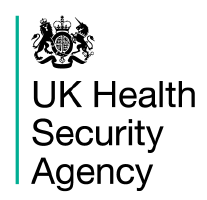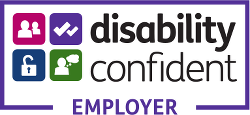Job summary
- Main area
- Risk Communications
- Grade
- Civil Service: Grade 7
- Contract
- 5 months (Bank contract till 31/03/2026 (potential to be extended beyond this date))
- Hours
- Flexible working - 0 hours per week (bank contract (0 hours))
- Job ref
- 919-GB-309910-EXT
- Employer
- UK Health Security Agency
- Employer type
- Public (Non NHS)
- Site
- Canary Wharf HQ
- Town
- Canary Wharf, London
- Salary
- £60,494 - £70,566 per annum, pro rata
- Salary period
- Yearly
- Closing
- 11/11/2025 23:59
Employer heading

Risk Communications & Community Engagement & Social Science Specialist
Civil Service: Grade 7
Job overview
The main purpose of the post is to provide RCCE (Risk Communications and Community Engagement) and operational social science support to cover the activities to meet UK-PHRST (Public Health Rapid Support Team) objectives for outbreak response, research, teaching and capacity building within an outbreak context.
The post holder must be available to be rapidly deployed overseas as part of the response function of the UK-PHRST.
We are currently recruiting for 2 Risk Communications & Community Engagement (RCCE) & Social Science Specialist to join our team!
Main duties of the job
Partnership Working
• Develop and nurture key relationships with a wide range of individuals and stakeholders as required for role.
• Contribute to strengthening regional and in-country capacity and capability through training and coaching.
Capacity strengthening and research
• Reservists may be requested to provide surge support for specific capacity strengthening or research projects, which may include activities which:
• Contribute to teaching/training programmes and activities on RCCE and/or social science.
• Contribute to the development and management of a capacity strengthening programme overseas, or global products such as the creation of new tools or updating existing guidelines.
• Teach colleagues and stakeholders on risk communications and community engagement and/or operational social science
• Support ongoing training activities within the UK-PHRST and partners.
• Develop teaching material and courses.
• Conduct and contribute to UK-PHRST research projects for RCCE or social science.
• Analyse datasets with appropriate methodology to answer research questions.
• Write research reports and peer-review manuscripts.
• Present at scientific conferences, meetings and other fora.
Working for our organisation
We pride ourselves as being an employer of choice, where Everyone Matters promoting equality of opportunity to actively encourage applications from everyone, including groups currently underrepresented in our workforce. UKHSA ethos is to be an inclusive organisation for all our staff and stakeholders. To create, nurture and sustain an inclusive culture, where differences drive innovative solutions to meet the needs of our workforce and wider communities. We do this through celebrating and protecting differences by removing barriers and promoting equity and equality of opportunity for all. Please visit our careers site for more information https://gov.uk/ukhsa/careers
Detailed job description and main responsibilities
Main Duties and Responsibilities continued:
Outbreak Response
• Provide support on outbreak response activities for the country of deployment and the UK- PHRST for risk communication and community engagement activities, and the collection and analysis of operational social science data.
• Lead and/or contribute to the design, development, and implementation of targeted interventions (informed by community engagement, rapid social science research, community feedback data and appropriate theoretical approaches), to assist with outbreak management and reduce spread of disease either nationally or in specific, affected areas.
• Lead and/or contribute to the development, elaboration and implementation of the risk communication and community engagement plan, ensuring this is underpinned by robust operational social science research, as part of outbreak response operations
• Ensure that rapid social science research, including analysis of community feedback data, is disseminated to other response pillars (e.g. surveillance, case management etc.) and used to inform decision making across the response
• Identify and develop strong partnerships with key stakeholders - community groups, leaders and other partners in the community and civil society - for collaborative and participatory approaches to intervention design and implementation to stop disease transmission
• Liaise closely with local and regional counterparts for risk communication and social science (such as the Collective Service, or the Social Science in Humanitarian Action Platform) ensuring coherence of strategy, materials and messages. Ensure that technical material produced by the response locally integrates community engagement principles and practice.
• Support management of outbreak priorities and activities with social science evidence-based advice, in line with outbreak response needs.
• Provide additional support to the development, implementation and evaluation of social and behavioural science components within the national outbreak response (e.g., revisions to guidance documentation, advising on national intervention design and implementation).
• Support response in affected countries to reduce the impact of the outbreak, including scoping the need for further support and research.
• Work on sustainable RCCE and operational social science plans. Projects conducted by RCCE/Social Science UK-PHRST should aim to be sustainable even after the end of deployment.
• Support inter-agency coordination efforts for the risk communication and community engagement pillar to ensure harmonization of tools and approaches as well as information sharing amongst key stakeholders.
• Contribute to the development, strengthening and application of social data collection for risk communications and community engagement interventions, as well as for other pillars of the operation.
• Support cross-pillar coordination efforts, information sharing, and the design and implementation of integrated outbreak response approaches.
• Liaise with appropriate national and regional counterparts to integrate findings from knowledge, attitude and practice (KAP) surveys, ethnographic studies, focus group discussions, key informant interviews, observation and other feedback from community engagement activities into operational decision-making platforms.
• During deployments or as part of capacity strengthening, train partner staff on RCCE and operational social science components (e.g. establishing community feedback mechanisms, developing social listening skills)
Management
• Actively engage in meetings with internal and external colleagues.
• Identify and seek to resolve potential problems.
• Be responsible for managing own workload, including developing objectives and reviewing progress against these.
• Comply with UKHSA Information Governance standards, including understanding the ethical, legal and technical obligations for protection of personal patient information
• Line management as necessary within the team
PROFESSIONAL DEVELOPMENT
- Pursue a programme of continuous professional development in accordance with any relevant professional registration or statutory requirements, while maintaining appropriate awareness of service provider requirements.
- Undergo pre-deployment training and other appropriate training courses as required by members of the deployable UK-PHRST.
- Pursue other statutory and mandatory training, in accordance with UK-HSA requirements.
- Participate in the organisation’s staff appraisal scheme and departmental audit as appropriate.
- To actively manage and support the development of individuals and the team through appraisal, personal development planning, coaching and mentoring.
- To be aware of Civil Service, WHO and UN competencies and to be working to them as appropriate.
Other Duties
- The above is an outline of the tasks, responsibilities and outcomes required of the role. The post holder will carry out additional duties as may reasonably be required by the directorate, with appropriate training as required.
- The job description and person specification may be reviewed on an ongoing basis in accordance with the changing needs of the organization and programme.
This is not an exhaustive list.
Essential role criteria:
• MSc or PhD in Social and Behavioural Science, Sociology, Anthropology, Psychology, Education, Communication, Public Relations or another relevant Public Health Communications related field
• Knowledge of current developments in risk communication and community engagement and/or in operational social science in outbreaks or other public health emergencies
• Proven experience of qualitative data collection for rapid assessments, operational research, social data research and analysis, including participatory and qualitative methods, with proficiency in qualitative data analysis software such as NVivo, supported by peer-reviewed publications.
• Proven experience in the development and implementation of RCCE and rapid social science strategies and plans in LMICs
• Experience of delivering training and/or capacity development in risk communications, community engagement, health promotion, operational social science or communication for international development.
• Experience of providing effective project and people management.
• Able to apply risk communications/community engagement principles and concepts in acute emergency settings in LMICs
• Highly effective verbal, written and presentation communications skills; capable of constructing and delivering clear ideas and concepts concisely and accurately for diverse audiences.
• Able to build and maintain effective relationships with co- workers and key stakeholders both in the UK and overseas
• An understanding of and commitment to equality of opportunity and good working relationships, both in terms of day-to-day working practices, but also in relation to management systems and working with multi-ethnic and multi-cultural teams.
Desirable role criteria:
• Understanding of information governance, data protection issues and data confidentially requirements.
• Ability to communicate (speak/read) at a working level in a second language (other than English), such as French, Portuguese, or Arabic.
Selection Process Details:
This vacancy will be assessed using a competency-based framework which will assess your qualifications, knowledge and experience and / or skills and abilities outlined in the essential criteria.
Stage 1: Application & Sift
You will be required to complete an application form. You will be assessed on the listed (11) essential criteria, and this will be in the form of a:
- Application form (‘Employer/ Activity history’ section on the application)
- up to 1250 word supporting statement.
This should outline how your skills, experience, and knowledge, provide evidence of your suitability for the role, with reference to the essential criteria.
The Application form and supporting statement will be marked together.
Longlisting:
In the event of a large number of applications we will longlist into 3 piles of:
- Meets all essential criteria
- Meets some essential criteria
- Meets no essential criteria
The following will be taken through to the next stage:
- Meets all essential criteria
Shortlisting:
In the event of a large number of applications we will shortlist on the following:
- Proven experience in the development and implementation of RCCE and rapid social science strategies and plans in LMICs
Desirable criteria may be used in the event of a large number of applications / large amount of successful candidates.
If you are successful at this stage, you will progress to interview & assessment
Please do not exceed 1250 words. We will not consider any words over and above this number.
Feedback will not be provided at this stage.
Once this job has closed, the job advert will no longer be available. You may want to save a copy for your records.
Please note you will not be able to upload your CV. You must complete the application form in as much detail as possible. Please do not email us your CV.
Stage 2: Interview
You will be invited to a (single) remote interview.
Knowledge, experience, skills & abilities will be tested at interview .
Eligibility Criteria - External
Open to all external applicants (anyone) from outside the Civil Service (including by definition internal applicants).
Location
This role is being offered as hybrid working based at our Core HQ in Canary Wharf, London.
We offer great flexible working opportunities at UKHSA and operate using a hybrid working model where business needs allow. This provides us with greater flexibility about how and where we work, to
get the best from our workforce. As a hybrid worker, you will be expected to spend a minimum of 60% of your contractual working hours (approximately 3 days a week pro rata, (averaged over a month). Our core HQ offices are modern and newly refurbished with excellent city centre transport link and benefit from benefit from co-location with other government departments such as the Department for Health and Social Care (DHSC).
Security Clearance Level Requirement
Successful candidates will require Basic Personnel Security Standard (BPSS) as a minimum with willingness and capability to work towards Security Check (SC) clearance.
You should normally have been resident in the United Kingdom for the last 5 years to obtain Security Check (SC)clearance. UK residency less than the outlined periods may not necessarily bar you from gaining national security vetting at this higher level and applicants should contact the Vacancy Holder / Recruiting Manager listed in the advert for further advice.
Person specification
Application form and supporting statement
Essential criteria
- Application form and statement of suitability
Essential Criteria
Essential criteria
- Questions on experience, knowledge and skills
Documents to download
Further details / informal visits contact
- Name
- Gurkamal Bhambra
- Job title
- Resourcing
- Email address
- [email protected]
List jobs with UK Health Security Agency in Administrative Services or all sectors






